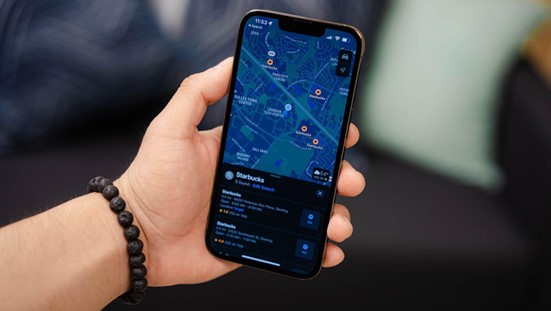By Abiodun Salako
On December 22, the National Bureau of Statistics (NBS) revealed that between March 2023 and April 2024, more than 25 million phones were stolen in Nigeria in a report titled: The Crime Experience and Security Perception Survey (CESPS) 2024. As someone who has experienced this firsthand, this statistic is alarming, not just for its magnitude but for its implications on the fundamental right to security of every Nigerian. Mobile phones have become targets in a society where economic hardship and weak law enforcement have allowed crime to flourish.
In today’s world, phones are much more than communication devices. They serve as portals to education, banking, business, and essential services. Victims often lose access to their banking apps, savings and essential documents. The psychological trauma from such incidents compounds the loss, with many victims facing threats, violence or death during the theft. In a country where mobile connectivity is essential for education and business, losing a phone equates to losing opportunities and severely undermines citizens’ rights to security as guaranteed by the Nigerian Constitution.
At the heart of this epidemic is economic desperation. With rising unemployment, Nigeria’s job market has failed to provide opportunities for its growing population. Inflation and a depreciating naira have thickened this problem, pushing millions into poverty and creating a vicious cycle of crime and insecurity. Many individuals resort to stealing phones as a quick way to make money, given the high demand for second-hand phones and the ease of selling them in informal markets. A smartphone stolen in Lagos, for instance, can easily be sold in another city with minimal scrutiny. Taking on this crisis requires a four-way approach: reforming law enforcement, investing in tracking technologies, implementing policies to reduce unemployment and economic desperation, and awareness and education.
Reforming law enforcement is a critical first step in addressing this issue. The Nigeria Police Force (NPF) has done little to tackle phone thefts. The report showed that 90% of victims report the crime, only 11.7% of phones are recovered. Many Nigerians, frustrated by corruption and inefficiency, turn to vigilante groups or community leaders for help, eroding trust in the security system. It is no longer news that the police demand bribes, such as a “mobilisation fee” and rely on private tracking firms to locate phones, charging victims N30,000 or more. For the average Nigerian, particularly those from low-income backgrounds, such costs are prohibitive. This raises fundamental questions: Why should citizens pay for what is fundamentally the government’s responsibility and free? And where are they supposed to find the money to do so? To restore accountability and trust, the NPF must implement strict oversight mechanisms, such as independent complaint bodies, to deter misconduct and encourage victims to report phone thefts without fear of extortion. With transparent, ethical policing, the public may once again view law enforcement as allies rather than adversaries.
- Female-led phone thieves gang uncovered in Kano, 5 suspects in police net
- FCT Administration moves against vandals
Another gap that must be closed is the absence of a functional robust technological framework to track stolen phones. While most modern phones are equipped with unique International Mobile Equipment Identity (IMEI) numbers, Nigeria lacks a centralised system to utilise these tools effectively. But this measure has proven effective in Kenya, where the Communications Authority implemented a system that tracks and blocks stolen phones, making them unusable. When a stolen phone becomes worthless, the incentive to steal it diminishes. In September, the Nigerian Communications Commission (NCC) introduced a Device Management System to combat phone theft. This system will serve as a repository of all registered mobile phones’ IMEIs, allowing operators to track and block stolen devices. But there is little information on the DMS to the public and relevant stakeholders, how and where this management system will be accessed, its limitations and potential impact on citizens’ privacy, data protection and transparency. All these should be properly addressed by the NCC.
Strengthening community-based security measures is another important strategy. According to the NBS, 70% of phone thefts occur in public spaces or homes. High-risk areas such as markets, bus stops, and public transport hubs require enhanced security. Communities within cities can leverage technology, such as CCTV cameras and mobile apps for reporting crimes, to improve security. For instance, the city of Johannesburg in South Africa saw a reduction in street crimes, including phone theft, after deploying an integrated surveillance system that worked in tandem with community reports. Studies have also shown that CCTV reduces various crimes, especially theft and robberies in focal areas in countries like South Korea, United States of America and the United Kingdom.
Addressing the root cause of crime – economic desperation – is equally essential. Without tackling this, any solution will be temporary at best. The government needs to reassess economic processes and policies that further deepen poverty, provide job opportunities, vocational training, and transparent, targeted financial support under social safety nets to vulnerable populations can reduce the number of people turning to theft as a means of survival. The government requires strategic and widespread investments in infrastructure, agriculture, technology, and small-scale manufacturing to create jobs and stimulate local economies.
Government programmes like the United States’ Job Corps, which combines education, job training, and career preparation for disadvantaged youths could serve as a model for Nigeria. Moreover, initiatives like the N-Power programme should be revamped, expanded and adequately funded.
Education and awareness campaigns can also play a significant role in reducing phone theft. Many people unknowingly buy stolen phones, either because they are cheaper or because they are unaware of the legal risks. By educating citizens about the consequences of purchasing stolen devices and encouraging them to verify the source of
used phones, the demand for stolen goods can be reduced.
Countries like the United Kingdom, the United States, India have successfully done such campaigns.
Without urgent action, the social, human and economic costs of this epidemic will only grow. The 25 million stolen phones represent more than just stolen property – they symbolise disrupted lives, stalled businesses, lost lives and diminished freedoms. A society where citizens cannot trust law enforcement or feel safe in public spaces cannot thrive. People have lost family members to this mugging. Yet, this crisis is not insurmountable. By learning from other nations and addressing the root causes of phone theft, Nigeria can turn the tide. Strengthening law enforcement, creating jobs, creating awareness and education and leveraging technology are not just solutions—they are necessities. The right to live without fear and to access the tools needed for personal and professional growth is fundamental. Nigeria must act to protect these rights.
Every stolen phone tells a story of financial loss and in some cases lives cut short as these thieves have no modicum to value any human being. The NBS report is a charge for the government to fulfill its duty to protect lives and property. reform law enforcement, investing in tracking technologies, and implementing policies to reduce unemployment and economic desperation. Without only grow worse.
With the right measures in place, Nigeria can significantly reduce this crime and ensure that its citizens can use their phones without fear of theft and potential harm to their lives.
Salako is a journalist and fellow at African Liberty

 Join Daily Trust WhatsApp Community For Quick Access To News and Happenings Around You.
Join Daily Trust WhatsApp Community For Quick Access To News and Happenings Around You.


